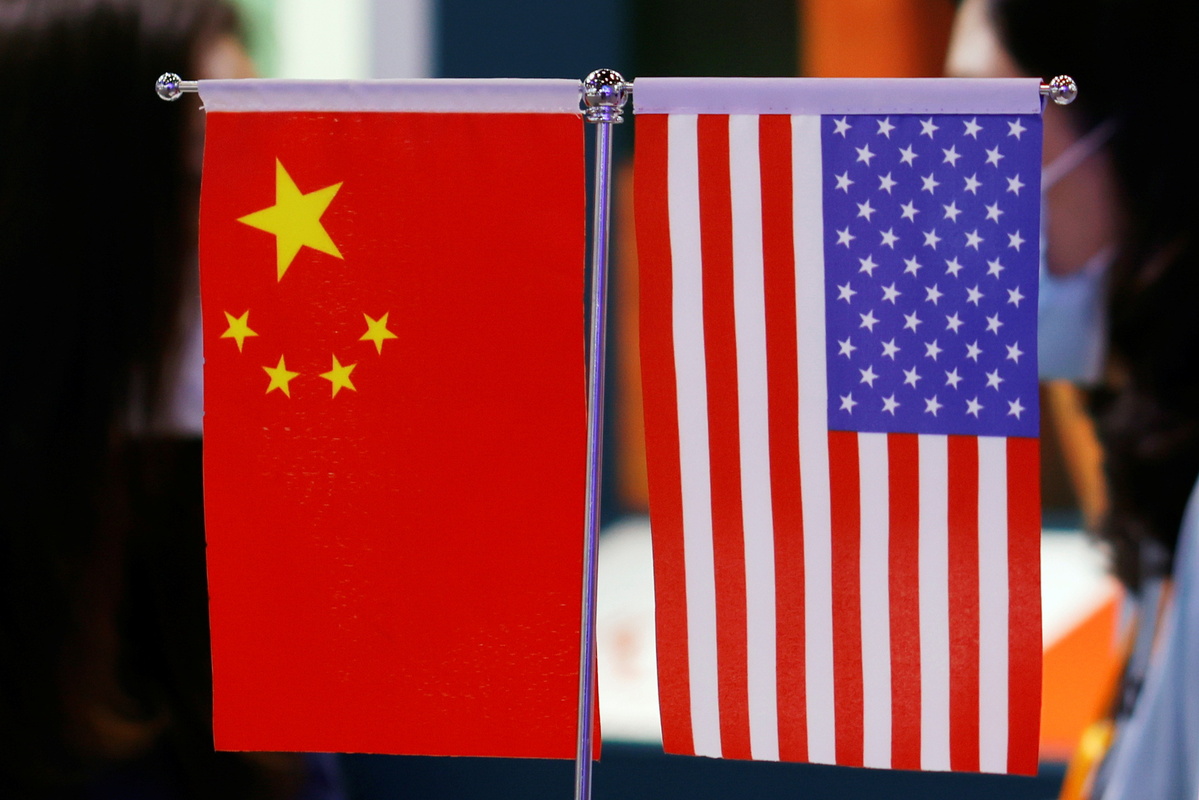Washington should learn to quit China-smearing addiction


Little wonder that the current US administration has turned out to be not so different from its predecessor when it comes to China, if not more hypocritical.
Outlining the China policy of the current White House on Thursday, US Secretary of State Antony Blinken rehashed the same old "China-threat" theory, hyped up the you-win-I-lose style competition and bloc politics, peddled lies about China's human rights records, and smeared China's domestic and foreign policies. Yet in his harangue Blinken also claimed that Washington is "not looking for conflict or a new Cold War."
What a curious paradox! In fact, what Washington is trying to do is only too easy to see through: containing China while pretending that it does not want to.
Such a two-faced approach has not only laid bare Washington's obdurate Cold War mentality, but also attested to its true colors of being increasingly sanctimonious.
The truth is that the United States itself is the real saboteur to the existing world order, a major threat to global peace and stability, and a serious violator of international law and human rights.
To reign supreme the world over, Washington has over the decades waged one bloody military adventure after another overseas, sanctioned unilaterally whichever country or entity it deemed fit, heightened geopolitical tensions in Asia and elsewhere, and tried to override the basic norms of international relations based on the purposes and principles of the UN Charter with its own set of rules.
Facing a rapidly developing China, the United States has grown increasingly agitated. Yet it seems that Washington is not trying to move ahead by making itself better, but by taking China down.
It has blacklisted Chinese high-tech enterprises with groundless charges, slapped self-defeating tariffs on Chinese goods, and intervened China's domestic affairs concerning Hong Kong, Xinjiang, Tibet and others.
And on the Taiwan question, the United Stats has repeatedly violated its promise and sought to hollow out the one-China principle, putting peace and stability across the Taiwan Strait on the line.
Most recently, Washington has been attempting to knit an anti-China alliance in Asia-Pacific through the newly-announced and largely-vague "Indo-Pacific Economic Framework" and the Quad mechanism.
So when Blinken claimed that Washington does not want to stop China from growing its economy or advancing the interests of its people, nor does it expect to force other countries to pick sides between Washington and Beijing, he basically means just the opposite.
Today, the China-US relationship is standing at a critical juncture. History has testified to the fact that the two sides profit from cooperation and lose from confrontation, and so does the world as a whole. That is even more true at this all-hands-on-deck moment when the global community is wrestling with a torrent of unprecedented global challenges like beating the COVID-19 pandemic, reinvigorating the global economy that is on the brink of a recession, and cooling down a warming up planet.
Thus, the United States should work with China to foster a healthy and stable relationship that features mutual respect, peaceful coexistence and win-win cooperation, which is a truly responsible way to manage what many deem as the world's most important bilateral relationship.
And Washington expects to have China's cooperation in areas where it needs help while trying to decouple or even instigate conflicts with China in others. Such compartmentalized bilateral ties are simply unacceptable.
At an event on Thursday, Chinese Ambassador to the United States Qin Gang said that competition is not the mainstream or theme of the China-US relations. The notion that the China-US relationship is defined by competition will only escalate tensions and lead to conflict.
More fundamentally, in this age of global interdependence and interconnectedness, decision-makers in Washington should be able to rise above the outdated Cold-War dogma that the world is all about an us-versus-them struggle, and that only one side can end up as the final winner.
That ought to start with implementing US President Joe Biden's promises to his Chinese counterpart, Xi Jinping, during their video call in March, which include not seeking a new Cold War with China, not aiming to change China's system, no intention to have conflict with China, and not supporting "Taiwan independence," among others.
"There's no reason why our great nations cannot coexist peacefully, and share in and contribute to human progress together," claimed Blinken at the end of his China policy speech.
If that is truly what United States intends, it should at least begin with weaning itself off an unhealthy obsession with demonizing China, and casting aside the zero-sum mindset. After all, a great nation should act like one.
































